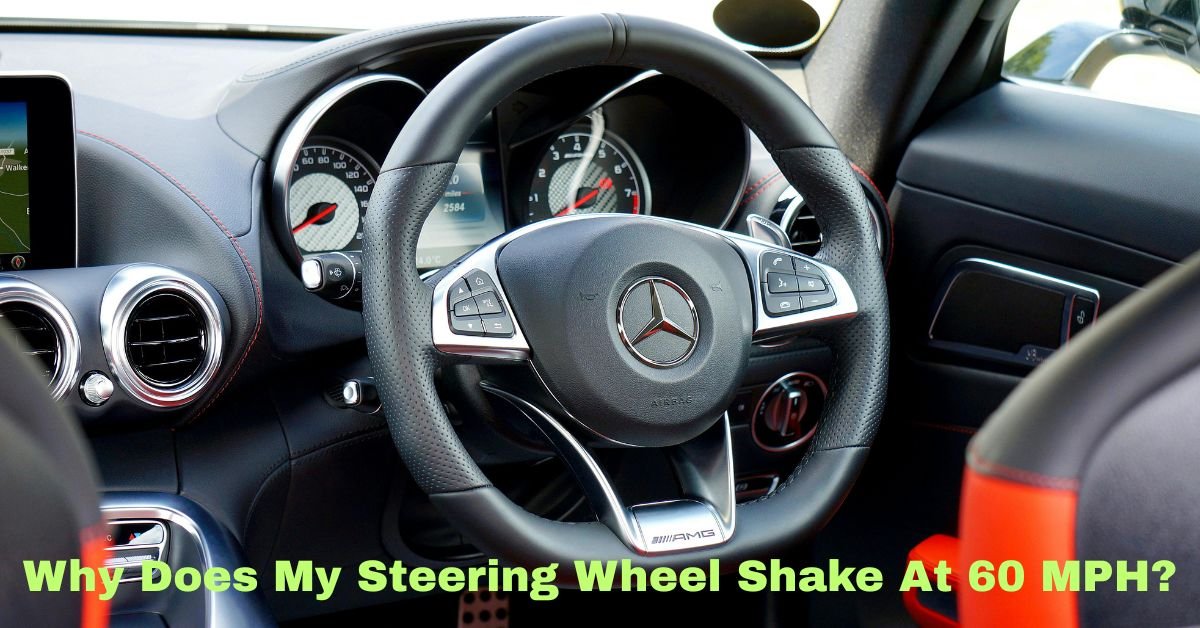If you’ve ever been cruising down the highway and suddenly noticed your steering wheel shaking or vibrating — especially around 60 mph — you’re not alone. This is a common issue that many drivers face, and it can be both annoying and concerning. While a slight vibration may seem like a minor nuisance, it can actually be a sign of more serious problems with your vehicle. In this post, we’ll break down the most common reasons your steering wheel might shake at high speeds and what you can do about it.
Why Does My Steering Wheel Shake at 60 MPH?
1. Wheel Balancing Issues
One of the most frequent causes of steering wheel shake at higher speeds is unbalanced wheels. When your tires are mounted on the rims, they need to be balanced using small weights to ensure that they spin evenly. If those weights fall off, or if the tires wear unevenly, it can cause an imbalance that becomes noticeable at highway speeds — typically around 55–65 mph.
Solution: Have your tires balanced by a professional. Most tire shops can do this quickly and affordably.
2. Tire Problems
Your tires are the only part of your vehicle that touches the road, so any issues with them can lead to noticeable vibrations. This could include uneven tread wear, flat spots, bubbles, or even defects in the tire itself. Improper inflation — whether over or under-inflated — can also cause your tires to wear unevenly, contributing to a shaky ride.
Solution: Inspect your tires for visible issues. Use a tire gauge to check that they’re properly inflated, and rotate them regularly to promote even wear. It is preferable to replace a tire if it has evident defects or internal deterioration.
3. Worn Suspension Components
Your suspension system plays a crucial role in keeping your ride smooth and stable. Over time, components such as ball joints, tie rods, and control arms can wear out. When that happens, you may notice vibrations in the steering wheel — especially when driving at higher speeds.
Solution: Have a mechanic inspect your suspension system. Replacing worn parts not only improves comfort but also increases safety.
Must Read: Is A Squeaky Steering Wheel Dangerous?

4. Brake Issues
Though shaking due to brake issues is more commonly felt when braking, warped brake rotors can also cause vibrations at higher speeds. Uneven contact between the brake pads and warped rotors might cause the steering wheel to wobble.
Solution: If your steering wheel vibrates more when you apply the brakes at 60 mph or higher, have your brake system inspected. Resurfacing or replacing warped rotors can usually fix the issue.
5. Alignment Problems
Poor alignment doesn’t just cause uneven tire wear; it can also lead to vibrations. If your car is out of alignment, your wheels aren’t pointing in the same direction. This misalignment can make the steering wheel feel unstable, especially when driving fast.
Solution: A wheel alignment service will ensure your vehicle tracks straight and handles properly. Additionally, it prolongs the life of your tires.
6. Bent Wheels or Axles
If you’ve recently hit a pothole, curb, or been in a minor accident, there’s a chance you may have bent a wheel or axle. Even a slight bend can throw the wheel out of balance and cause noticeable shaking at higher speeds.
Solution: Bent wheels often need to be replaced or repaired by a professional. A mechanic can also check the axles and drivetrain for any hidden damage.
Don’t Ignore the Shake
While a shaking steering wheel at 60 mph might seem like a minor annoyance, it could be a sign of more serious issues lurking beneath the surface. Driving with these kinds of problems can lead to more expensive repairs down the line — not to mention potential safety risks. Regular maintenance and prompt attention to symptoms like vibration will keep your car running smoothly and your ride safe.
If you’re experiencing this problem, it’s best to schedule an inspection with a trusted mechanic. That little shake could be your car’s way of telling you it needs attention.
